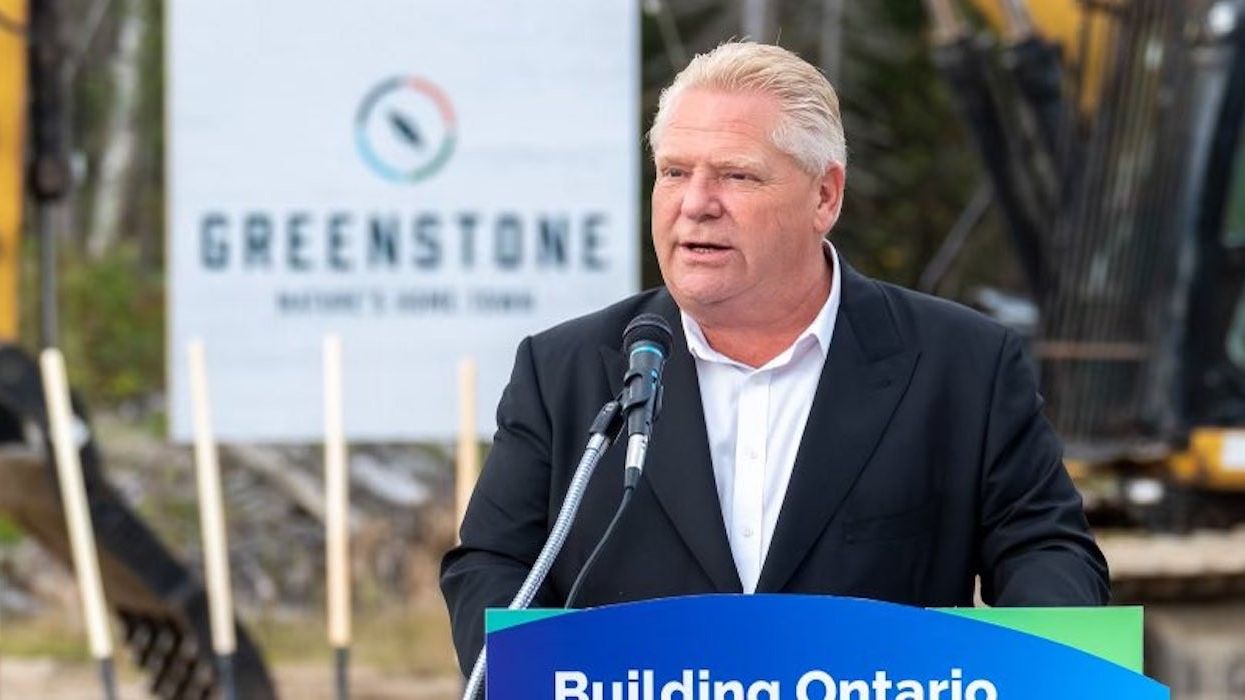It may not compare with 1992, Queen Elizabeth’s year from hell, but has an annus in Ontario ever been quite so horribilis as 2023, its season of disappointment, depression and decline?
It was a year when Canada’s most populous province turned into Tennessee North, a place beset by growing poverty, increasing social inequality, bureaucratic incompetence, scandal and an endless parade of political corruption. Led by Premier Doug Ford, failed-up scion of Etobicoke’s celebrated hillbilly dynasty and self-styled man-of-the-people, Queen’s Park managed to bungle every file from healthcare and public transit to education, housing and the cost of living. And let’s not forget his ill-considered incursion into the Greenbelt or the disturbingly secretive, offensive, handling of Ontario Place and the Ontario Science Centre.
Virtually nothing Ford has done since first being elected in 2018 has passed the smell test. Indeed, the stench emanating from the Pink Palace in 2023 became overpowering. Little wonder that by September, his approval rating had plunged to 28%. And that can only have come thanks to the generosity of city-hating hinterlanders. But even in the boonies, the criminal investigation into Ford’s Greenbelt give-away the Royal Canadian Mounted Police launched in September is unlikely to bolster the Premier’s standing.
Unsurprisingly, Ford’s rump parliament was bad news for Ontario’s towns and cities across the province. His willingness to ride roughshod over local planning rules and intervene clumsily into civic issues to settle personal scores and benefit his developer cronies was a blatant misuse of provincial power. It was yet another reminder – if one were needed – that civic democracy in Canada is a cruel illusion. Bluntly put, the Canadian Constitution allows provinces to do as they please with municipalities.
In Hamilton, that enabled Ford to accommodate the demands of local developers by expanding city boundaries against city wishes. The most brazen example occurred when the Conservative government copied a builder’s request to alter Hamilton’s Official Plan, word for word, into its approval of a proposed mid-size condo. That decision was rescinded in October after the CBC revealed the disturbing details of developer influence over Ford and his regime.
On a more positive note, Ford’s antics have inspired Ontarians to mobilize as they haven’t since the 1960s and ‘70s. Public pushback against his backroom Greenbelt deals led to the resignation of a senior cabinet minister and several political staffers. It also forced him to backtrack, even apologize, anathema to a life-long bully like Ford. Similarly, saving Ontario Place from the Premier’s sticky fingers and vulgarian impulses has motivated thousands of Ontarians, let alone Torontonians, to engage in the growing effort to stop Ford’s hopelessly inappropriate plans.
And let’s not forget his government’s fondness for Ministerial Zoning Orders (MZOs). Under his leadership, the Conservatives have enacted at least 110 MZOs since 2019, a number unprecedented in Ontario history. And as former Auditor-General Bonnie Lysyk pointed out in her 2021 land-use planning report, these orders came from behind closed doors. Transparency was not part of the process.
To be fair, the Premier’s powers are not unlimited. Inflation lies largely beyond his control, but not so education, health care and housing. All three are in a state of chaos. Studiously ignoring the advice of his own panel’s report, which told him his projected 1.5 million units could be built on land already serviced, Ford opted instead to use the crisis as cover for empowering his developer pals whose speciality is sprawl. At this point, chances that the housing Ontario needs will be constructed by 2031 are virtually nil.
But perhaps the most damaging legacy of Ford’s premiership is the normalization of the government’s casual but consistent willingness to override democratic norms, which can be so messy, inconvenient, and awkward. Then there’s the duplicity, cronyism, ineptitude and eagerness to pander to corporate interests. All of this comes at the expense of local priorities and explicit decision-making at the city level. Have expectations ever been lower?
When Torontonians elected Olivia Chow to replace John Tory after his shocking resignation last winter, it was clear signal that the city wanted a mayor willing to serve as de facto leader of the opposition and stand up to Doug Ford. It was Ford, by the way, who declared loudly that a Chow win would be an “unmitigated disaster” for Toronto. Since then, however, the two have managed to work out a “historic deal” that, though far from perfect, goes a long way to ensuring Toronto’s fiscal health. Chow has achieved more in five months than did her predecessors – Doug’s brother, Rob, and John Tory – in 12 years.
Never has the old adage about politics and strange bedfellows been borne out so starkly. No one expects that 2024 will be our annus mirabilis, but the new agreement is reason for optimism. After everything the province and city have been through this year, that’s a good place to start.





















